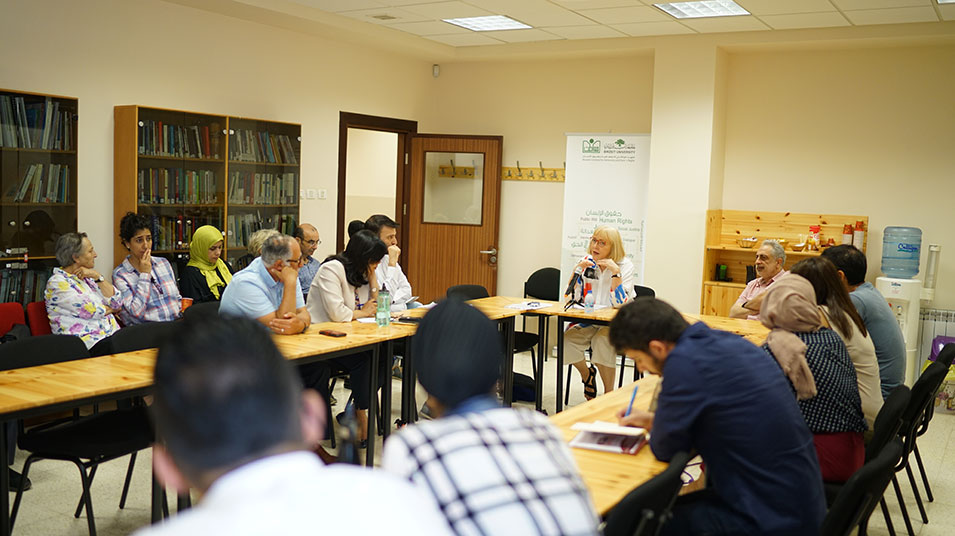Renata Salecl, a senior researcher at the Criminology Institute of the University of Ljubljana and a visiting professor at the London School of Economics, discussed her book “The Tyranny of Choice” in a lecture hosted by Windsor-Birzeit Dignity Initiative jointly with the A.M. Qattan Foundation at Birzeit University’s Muwatin Institute for Democracy and Human Rights on Monday, September 16, 2019.
In this lecture, students and professors explored with Salecl the notions in her book that revolve around the illusion of choice and the consumerist mentality, which has permeated all other aspects of life in post-industrial capitalist societies.
In his welcoming remarks, Mudar Kassis, director of the Muwatin Institute for Democracy and Human Rights, introduced the speaker and the topic at hand, saying that Salecl analyzed the overabundance of choice in post-industrial communities from a perspective grounded in philosophy, sociology, and psychoanalysis.
Salecl began the lecture by defining a nascent ideology which she calls “the ideology of choice,” which emerged as a by-product of the proliferation of neoliberalism and gained roots in the 1970s. This ideology, she noted, became linked with consumerism, and affected change in how people view themselves as makers of choice instead of bearers of rights. She gave an example of the abortion debate in the U.S., which turned from a discussion on the rights of women to one centered around choice conditioned by economic abilities.
Due to the ideology of choice, Salecl stressed, people view themselves free to make choices, but don’t realize that they usually don’t have the means to make those choices. The concept of freedom of choice, she added, assuages some of the psychological disorders that became commonplace in post-industrial societies, such as anxiety, guilt, and thoughts of inadequacy.
The illusion of choice, however, turns people’s attention inwards, Salecl emphasized, explaining that when faced with failure — per the society’s standards — people usually blame themselves and their choices, instead of looking outwards to the social, legal, and economic circumstances that affect the community as a whole.
Salecl noted that this focus on one’s self discourages people from attempting to instigate change in societies, creating a closed-loop that separates people from their communities and further drives them into anxiety that can only be mitigated by delving deeper into consumerism and the ideology of choice.
In this ideology, Salecl summarized, people forget that their economic situation determines their choices. Instead, they believe that making correct choices will improve their economic situation, eschewing social safety-nets and policies for an infinitesimal chance at great success.

